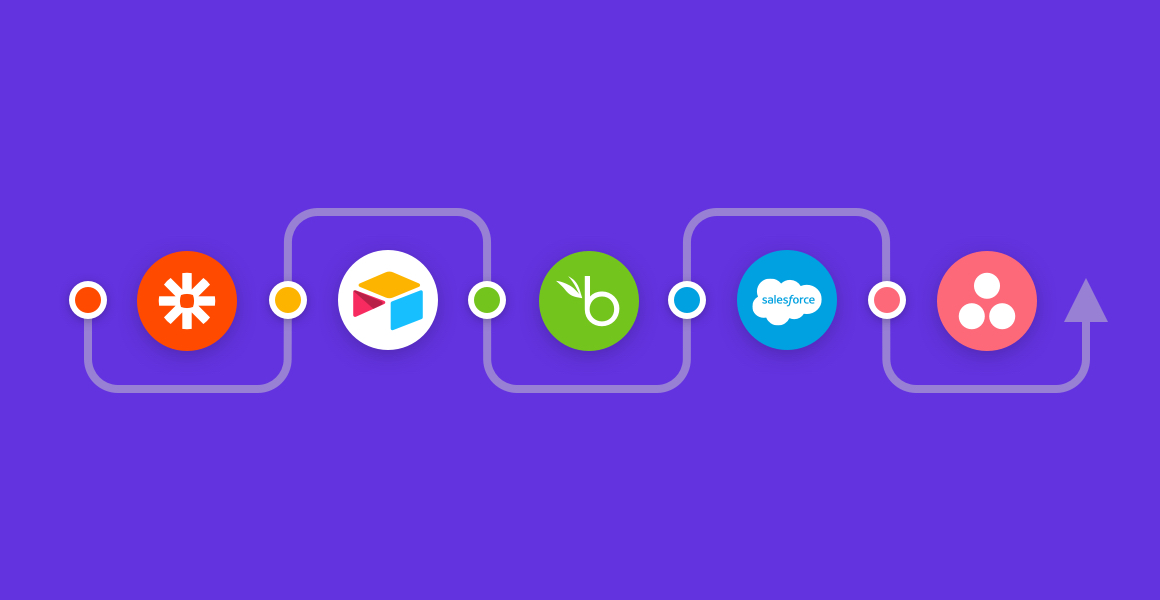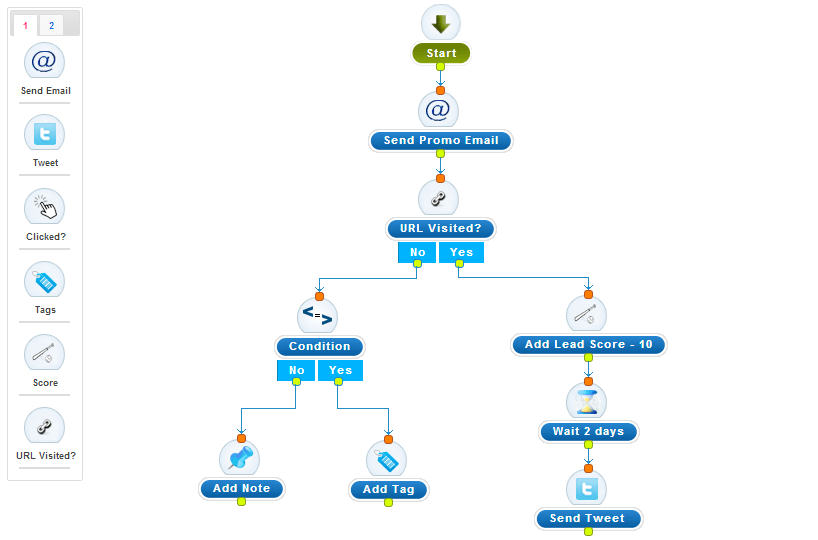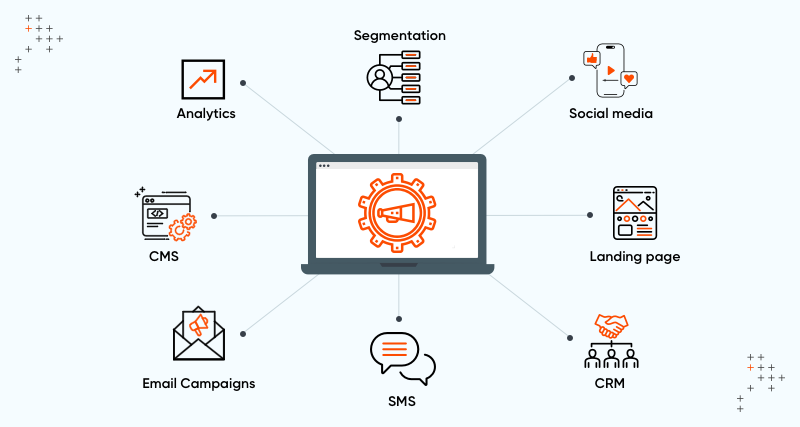In today’s fast-paced business environment, efficiency and productivity are key to staying competitive. One of the most effective ways to achieve this is through Customer Relationship Management (CRM) automation. Integrating automation into your CRM system can transform how you manage customer relationships, streamline processes, and ultimately boost your business’s performance. This comprehensive guide will explore the ins and outs of CRM automation, its benefits, key features, implementation tips, and future trends.
Understanding CRM Automation
What is CRM Automation?
CRM automation involves using technology to automate repetitive tasks related to customer relationship management. This includes automating tasks like data entry, email marketing, customer follow-ups, and reporting. By automating these processes, businesses can save time, reduce human error, and focus more on strategic activities that drive growth. such that e leads crm, eleads crm,
How Does CRM Automation Work?
CRM automation works by integrating various tools and software to handle routine tasks automatically. For example, when a new lead enters your system, the CRM can automatically assign it to a sales representative, send a welcome email, and schedule a follow-up task. This seamless process ensures that no lead is overlooked and that every customer receives timely and personalized communication.
Benefits of CRM Automation
1. Improved Efficiency and Productivity
Automating repetitive tasks frees up your team’s time, allowing them to focus on more critical activities. Sales and marketing teams can spend more time engaging with customers and developing strategies rather than handling mundane tasks.
2. Enhanced Customer Experience
CRM automation ensures consistent and timely communication with customers. Automated responses and follow-ups make customers feel valued and cared for, improving their overall experience and increasing the likelihood of repeat business.
3. Better Data Management and Insights
Automated CRM systems collect and organize customer data efficiently. This data can be analyzed to gain valuable insights into customer behavior, preferences, and trends. These insights enable businesses to make data-driven decisions and tailor their strategies to meet customer needs better.
4. Streamlined Sales and Marketing Processes
Automation streamlines sales and marketing processes by managing lead nurturing, campaign management, and follow-ups. This ensures that potential customers are engaged at every stage of the sales funnel, increasing conversion rates and driving revenue growth.
Key Features of CRM Automation Tools

1. Lead and Contact Management
CRM automation tools can automatically capture and organize lead and contact information. This feature ensures that all customer data is up-to-date and easily accessible, facilitating effective communication and follow-ups.
2. Workflow Automation
Workflow automation allows businesses to create automated processes for various tasks, such as lead assignment, task reminders, and follow-up emails. This ensures that no task is missed and that all processes are completed efficiently.
3. Automated Email Campaigns
Automated email campaigns enable businesses to send personalized emails to customers based on their behavior and preferences. This increases engagement and improves the effectiveness of marketing efforts.
4. Task and Project Management
CRM automation tools can help manage tasks and projects by assigning tasks, setting deadlines, and tracking progress. This ensures that all team members are on the same page and that projects are completed on time.
5. Reporting and Analytics
Automated CRM systems generate detailed reports and analytics on various aspects of customer interactions and sales performance. These insights help businesses make informed decisions and continuously improve their strategies.
How to Choose the Right CRM Automation Software

Factors to Consider:
- Scalability: Choose a CRM automation tool that can grow with your business.
- Ease of Use: Ensure the software is user-friendly and easy to implement.
- Integration Capabilities: The CRM should integrate seamlessly with other tools and systems you use.
Popular CRM Automation Tools:
- Salesforce: Known for its robust features and scalability, Salesforce is a top choice for many businesses.
- HubSpot: Offers a comprehensive suite of CRM and marketing automation tools.
- Zoho CRM: A cost-effective option with a wide range of features suitable for small to medium-sized businesses.
Implementing CRM Automation in Your Business
Steps to Successfully Implement CRM Automation:
- Assess Your Needs: Identify the specific tasks and processes you want to automate.
- Choose the Right Tool: Select a CRM automation tool that meets your requirements.
- Set Up and Customize: Configure the software to align with your business processes.
- Train Your Team: Ensure all team members are trained on how to use the new system.
- Monitor and Optimize: Continuously monitor the system’s performance and make adjustments as needed.
Common Challenges and How to Overcome Them:
- Resistance to Change: Address this by involving your team in the selection process and providing adequate training.
- Data Migration: Ensure a smooth transition by planning and testing the migration process thoroughly.
- Integration Issues: Work closely with your software provider to ensure seamless integration with your existing systems.
Best Practices for Effective CRM Automation:
- Start Small: Begin with automating simple tasks and gradually move to more complex processes.
- Regularly Update Your System: Keep your CRM software updated to take advantage of new features and improvements.
- Gather Feedback: Continuously gather feedback from your team and customers to improve the system.
Case Studies: Success Stories of CRM Automation

Case Study 1: Improved Sales Performance
A mid-sized company implemented CRM automation to streamline its sales processes. By automating lead assignments and follow-ups, they saw a 30% increase in lead conversion rates within six months.
Case Study 2: Enhanced Customer Engagement
A retail business used CRM automation to personalize its email marketing campaigns. This led to a 25% increase in email open rates and a 20% increase in online sales.
Key Takeaways:
- CRM automation can significantly improve sales performance and customer engagement.
- Personalization and timely communication are crucial for maximizing the benefits of CRM automation.
Future Trends in CRM Automation
AI and Machine Learning in CRM:
The integration of AI and machine learning into CRM systems is set to revolutionize customer relationship management. These technologies can analyze vast amounts of data to provide predictive insights, enabling businesses to anticipate customer needs and make proactive decisions.
Predictive Analytics and Customer Insights:
Predictive analytics will play a significant role in CRM automation, allowing businesses to predict customer behavior and trends accurately. This will enable more effective targeting and personalized marketing strategies.
The Rise of Omnichannel CRM Automation:
As customers interact with businesses through various channels, the need for omnichannel CRM automation is growing. This approach ensures a seamless and consistent customer experience across all touchpoints, from social media to in-store interactions.
Conclusion
CRM automation is a powerful tool that can transform how you manage customer relationships and streamline your business processes. By understanding its benefits, key features, and implementation strategies, you can harness the full potential of CRM automation to boost your business’s performance. Embrace the future trends in CRM automation to stay ahead of the competition and continue delivering exceptional customer experiences.






